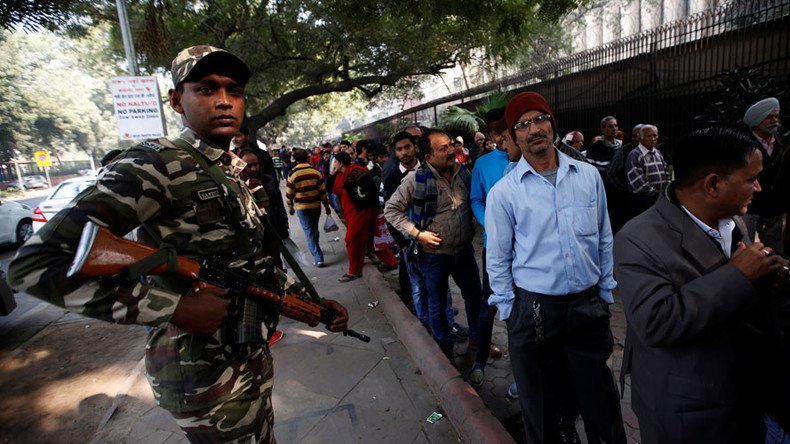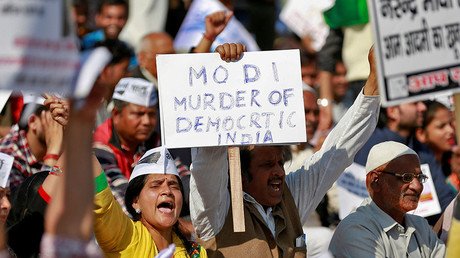Last day in India to exchange old rupee notes

The 50-day deadline to deposit the discontinued 500 and 1,000 rupee notes in banks ends on Friday. Those who don’t risk their money becoming worthless.
Indians living abroad will be able to exchange their old notes at branches of India's central bank until the end of March next year. After that, holding withdrawn notes will be considered illegal and could lead to hefty fines.
The 500 and 1,000 rupee bills (worth about $7.50, $15) that make up 86 percent of India's currency in circulation. They were withdrawn last month in an anti-corruption move by Prime Minister Narendra Modi.
READ MORE: India’s cash crunch cripples global diamond business
He said the measure will encourage more people to have bank accounts and move toward a society less reliant on cash. Almost all of India's transactions are in cash and many people don't have a bank account.
The dramatic decision caused chaos as cash machines began to run out of money with people rushing banks to exchange the old currency.
The government fixed a limit of 24,000 rupees ($353) per week on withdrawals from bank accounts and 2,500 rupees ($37) per day from ATMs given the currency crunch.
Cash-reliant businesses, such as real estate, tourism, transportation, gold and gems have been hit the hardest. Some have gone under, while others are suffering significant losses.
Farmers, produce vendors, small shop owners, and laborers who are usually paid in cash at the end of a day were among the worst affected. Many lost their jobs as small businesses shut down.
"The first two months have been so bad for us, we don't even have enough money to buy food," a 35-years old day laborer Neeraj Mishra told the Associated Press. "Overall, I think Modi has done some good. People with a lot of money are the ones who have been troubled. I don't have enough cash for it to bother me much," he added
'How to convert black money into white money?': Google search in India after Modi declares 'war' on cash https://t.co/aDQxvRiGknpic.twitter.com/yLTu8MOWFP
— RT (@RT_com) November 10, 2016
Analysts have expressed concerns over the scale of economic and social disruption and warned of impending contraction.
"The countless unpredictable consequences that will continue to show in the coming weeks and months mean that it is, in effect, a huge gamble," Jan Zalewski, an Asia expert with the Britain-based risk assessment firm Verisk Maplecroft was cited by AP. "Inflicting such huge costs for what is an uncertain outcome is problematic."
Despite the cash crunch India's economic growth this year is still expected to reach six to eight percent.













